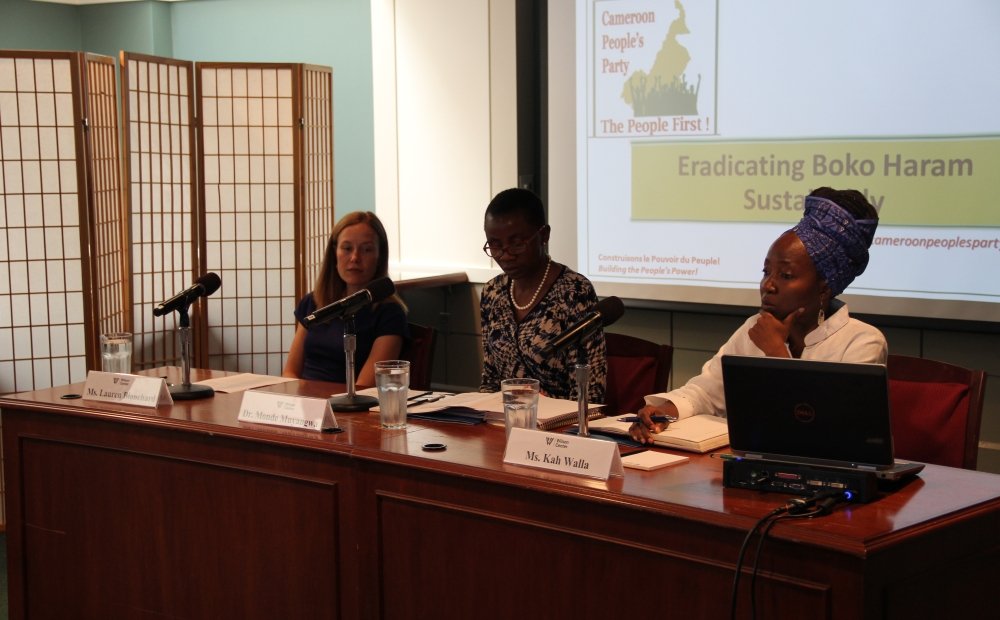Eradicating Boko Haram Sustainably: An Integrated Regional Approach

On June 24, 2015, the Wilson Center Africa Program hosted Kah Walla, CEO of Strategies!, and Lauren Ploch Blanchard, specialist in African Affairs with the Congressional Research Service, for a discussion on strategies for sustainably combatting Boko Haram. The speakers focused on the need for a regional approach and an integrated strategy to fight Boko Haram militarily, while also addressing the underlying issues that have given rise to the organization. The event also included a discussion of what the U.S. and global community can do to support the affected countries in their fight against Boko Haram.
Ms. Kah Walla stressed the need for Nigeria, Cameroon, Chad, and Niger to communicate and coordinate their approach and actions. She was encouraged by recently elected Nigerian President Muhammadu Buhari's open communication with regional partners and hopes this will continue, as communication and coordination have been challenges for the regional partners. However, these summits and meetings must be followed with technical meetings, plans of action, and development of infrastructure. Ms. Walla proposed a four-pronged, integrated strategy for combatting Boko Haram sustainably by focusing on military and police, human rights, humanitarian needs, and development. To ensure that defeating Boko Haram is sustainable, Ms. Walla emphasized that the governments need to develop short, medium, and long term plans that address all of these aspects. Boko Haram has been able to carry out its reign of terror and recruit members in areas where the population feel abandoned by the government due to lack of basic services and governance, poverty, and marginalization. Unless these root causes are addressed alongside the military action, the fight against Boko Haram will not be sustainable.
Ms. Lauren Blanchard addressed ways in which the United States and the international community can support and assist the region's efforts. Now is a key time to increase assistance, as President Buhair is committed to prioritizing the fight against Boko Haram and to addressing underlying grievances, in contrast to his predecessor. The U.S. has already provided some assistance to Nigeria, Cameroon, Chad, and Niger in the form of intelligence and information sharing, equipment, training, and logistics support. Ms. Blanchard encouraged the U.S. to continue this support, focusing on providing equipment to protect the troops on the front lines. However, Ms. Blanchard did caution against the potential risks of providing equipment to a region that is prone to coups, and has seen the misuse of U.S. military equipment in the past. Like Ms. Walla, Ms. Blanchard noted that U.S. assistance needs to move beyond a security response to address the underlying causes. There is also a need for greater humanitarian assistance to internally displaced persons and refugees in the region, as there are currently no Cameroonian government programs in place to assist them.
Speakers

Hosted By

Africa Program
The Africa Program works to address the most critical issues facing Africa and US-Africa relations, build mutually beneficial US-Africa relations, and enhance knowledge and understanding about Africa in the United States. The Program achieves its mission through in-depth research and analyses, public discussion, working groups, and briefings that bring together policymakers, practitioners, and subject matter experts to analyze and offer practical options for tackling key challenges in Africa and in US-Africa relations. Read more
